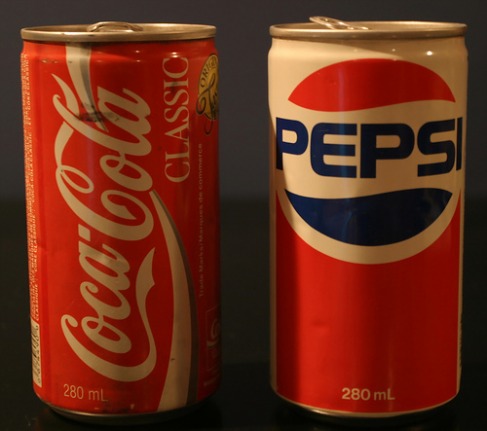Ok. I know I told you to stay away from sugar. So now you’re probably thinking, “No problem, I’ll just eat foods made with artificial sweeteners.” If so, PUT THE DIET SODA DOWN. While there are a few better choices than pure, white, refined sugar, artificial sweeteners do not make the list!
Aspartame, for example, which is labeled as NutraSweet, Equal, Spoonful and Equal Measure is wrapped in pretty, pastel packages and has been approved by both Health Canada and the Food and Drug Administration in the United States as safe for consumption. Don’t take this as a sign that you should eat it. Seriously.
One of aspartame’s main ingredients is methyl alcohol which, in the body, converts to formaldehyde. You probably remember the scent of formaldehyde from dissecting a frog in high school. Do you want to eat and drink the liquid seeping off of the frog? I know I don’t. If that image isn’t enough to turn you off, just Google “formaldehyde.” Yes, it’s a neurotoxin. Yes, it causes cancer. No, I don’t want to drink it.
Is Aspartame killing you?
James and Phyllis Balch, in their book "Prescription for Nutritional Healing," list aspartame under the heading “chemical poison,” which seems to make sense considering 75% of the adverse reactions to food additives in the U.S. are caused by the stuff. And if you were thinking that you would endure the reported headaches, tinnitus, tachycardia, vision problems, numbness nausea, etc. reported or deal with the diseases worsened by the amino acid damage aspartame causes, such as dementia, Alzheimer’s disease, Multiple Sclerosis and AIDS, in an attempt to save calories and be thin, think again. One of the reported side affects of ingestion is weight gain.
Now, don’t go getting cocky and patting yourself on the back because you eat Splenda (sucralose), not Aspartame. It isn’t a winner either. Dr. Joseph Mercola, on his site mercola.com, did a little research about this chemical sweetener, which was only actually eaten by 23 humans before it was approved and released on the market. The commercials focus on the fact that Splenda is made from sugar. That’s true. It is made from sugar. According to Dr. Mercola, however, once it has been processed, Splenda bears more relation to DDT, a banned insecticide, than sugar. Delicious.
How can you avoid it?
Want to stay away from artificial sweeteners? The easy answer is to stay away from packaged, processed foods. If this seems impossible, check the label. In general, a packaged food made from an artificial sweetener will say something like “reduced calorie.” Want to do what I do when I absolutely must have something in a package? Don’t buy it unless it’s organic. This doesn’t mean it’s healthy or low-sugar — you’re still going to have to check the food label — but it does mean it can’t contain artificial sweeteners.
No sugar. No artificial sweeteners. How in the world are you going to curb your sweet tooth? Stay tuned! I’ll let you know.
You can buy Prescription for Nutritional Healing 4th edition at Amazon.

 RSS Feed
RSS Feed

